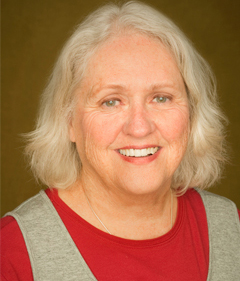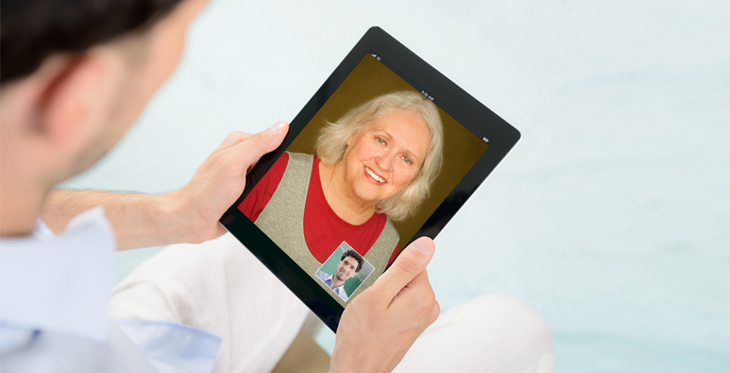Teri Dunn, a licensed clinical social worker, has been working with behavioral health patients for 34 years. For the last 12, she’s been with North Country HealthCare, a community health center based in Flagstaff.
North Country also serves patients at 14 other sites across northern Arizona, where there used to be little or no access to behavioral health care.
Telemedicine has changed that.
“I started working with the Arizona Telemedicine Program about three years ago, and in the beginning, I had some concerns,” Dunn says. “I’m not very good with technology, so I worried about feeling foolish and helpless. But I received really good training, and it’s very simple now.”
 “I also was not sure I could make a real connection with my patients, without seeing them in person. I was afraid I would not be able to read their body language, that kind of stuff. But now, it feels like that’s not a problem either.”
“I also was not sure I could make a real connection with my patients, without seeing them in person. I was afraid I would not be able to read their body language, that kind of stuff. But now, it feels like that’s not a problem either.”
And of course, she also was concerned about how patients would feel about having a session with her via videoconferencing.
Two of her patients rejected the telemedicine option, she says. Others have been OK with it.
“They just forget that they’re talking to a television screen. One patient even commented that the remote connection made it easier for her to talk about her alcohol problem, rather than being in the same room with me.
Dunn sees patients four days a week – one day via telemedicine for patients who live a long distance from Flagstaff, and three days in her office, with patients who live in the Flagstaff area.
Of great importance, she says, is a good support system at the remote site. “I need a medical assistant or a doctor who’s available at the other end, if the patient is very psychotic, or so depressed they aren’t functioning. It doesn’t happen very often, but when it does, I need that support.”
Overall, Dunn says, telemedicine has made behavioral health sessions more convenient and more accessible for her patients in rural Arizona.
“Just think, for example, what it’s like living in a remote place, without good transportation, and trying to get help for really severe anxiety, or any behavioral health problem,” Dunn says. “And when you think about gas being the price that it is, what is the chance that someone on disability income or Social Security is going to come here from one of those remote communities?
“Telemedicine is definitely working for these patients,” Dunn says. “More often than not, the patients feel like something good is happening here and it was worth doing this way.”

